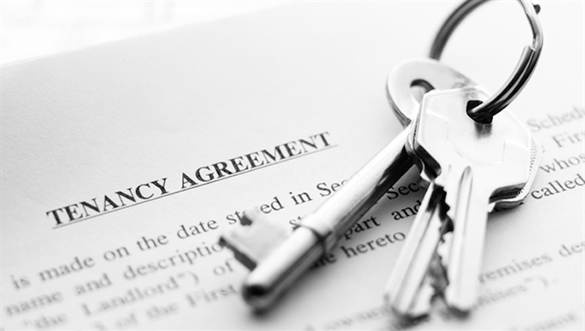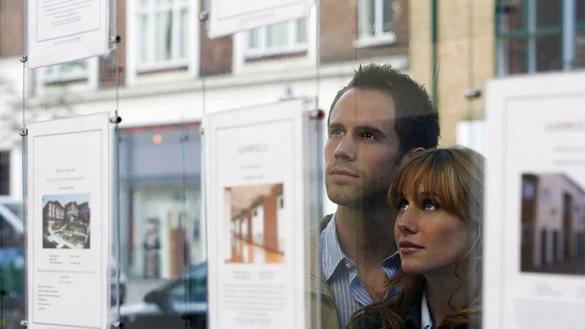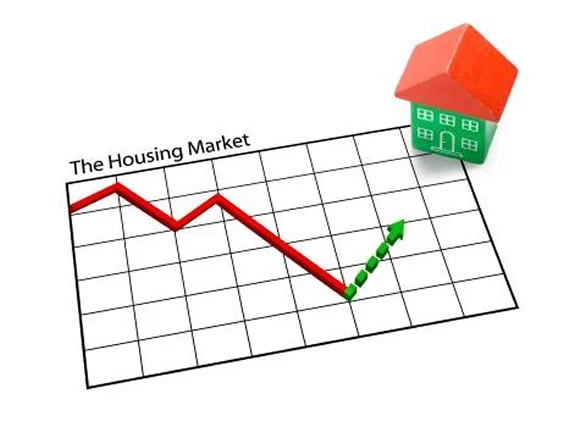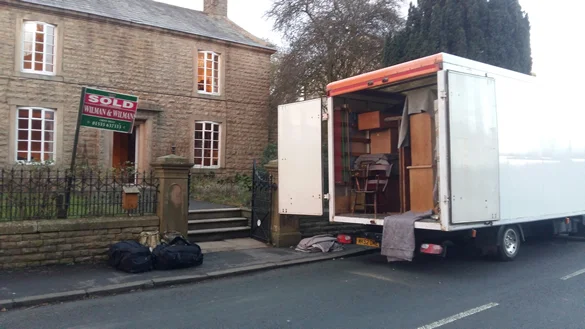Escape to the Country: City Dwellers Seek Sanctuary in Record Numbers
Slowly but surely, some semblance of normality is returning to the way we live our lives in England. COVID-19 hotspots in some regions continue to cause concern, but lockdown restrictions are gradually being eased across the country as a whole.
As predicted, pent-up demand among movers is now being released in England’s real estate sector, with some operators having experienced record activity levels in July. But what’s interesting is the way in which both home buyers and job hunters now appear to be taking their social distancing habits to an entirely new level, all entirely of their own accord.
Not only has the past fortnight seen a huge increase in the number of jobseekers looking for positions outside London, but a similar spike has been noted in the number of city residents looking to relocate to quieter corners of the country.
An exodus is underway
According to the latest figures from the Escape the City careers advisory service, the last two weeks saw twice as many jobseekers proactively looking to escape the capital as during the same period last year. For April as a whole, the number of active home buyers in London who registered their interests with estate agents in other parts of England also doubled compared to 2019.
Importantly, the apparent exodus is by no means exclusive to London. Hamptons estate agency has also reported growing interest in relocation to rural locations among buyers in Birmingham, Manchester, and other major cities.
For Londoners, some of the most attractive postcodes for those looking to escape the city included Milton Keynes in Buckinghamshire, Ipswich in Suffolk, and Worthing in Sussex. One of the few things all of these destinations have in common is a resident population at least twice as spread out as in London.
Aylesbury Vale in rural Buckinghamshire attracted particularly heavy attention from London-based movers during April. Whereas the proportion of people from London organising viewings in the region would normally have been less than 30% for April, approximately 44% of those signing for viewings in post-Covid England were currently located in London.
Home-based workforce
Along with the desire to seek safe and quiet refuge outside the big cities, the UK’s shift towards a predominantly home-based workforce for many businesses is also credited with fuelling this ongoing exodus. A growing number of businesses have announced that they will not be returning to their prior and predominantly office-based operational model, even when lockdown restrictions are entirely eliminated.
The benefits of working from home for businesses and employees alike are predicted to radically change where and how millions of workers across the UK live their lives. Whether it is avoiding crowds, eliminating time-consuming commutes, or simply staying safe, the potential benefits of working from home are appealing to more people than ever before.
As is the prospect of escaping the city for a safe, relaxed, and vastly more cost-effective lifestyle, a combination of factors is expected to continue fuelling the accelerating exodus for some time to come.
Asking Prices for Properties up £6,000 on Pre-Lockdown Averages
Lockdown has taken its toll on the UK’s housing market, but evidence would suggest things are gradually returning to normal, at least in terms of property values, which are heading in the right direction following an extensive period of stagnation.
According to the latest figures released by Rightmove, which is the UK’s leading online property portal, average house prices in England are up £6,000 on their pre-lockdown averages. These numbers suggest that the “flood of pent-up demand” predicted to hit the market as lockdown restrictions are eased may already be underway.
Hundreds of thousands of property transactions are known to have been put on hold during lockdown, and as of only a few weeks ago, these sales were once again allowed to proceed by the UK government.
An unprecedented, though expected, rush
Rightmove has noted that contact requests and general activity among buyers and sellers not only improved but actually surpassed all previous daily records when the market officially reopened.
“The surprise reopening of the market with only a few hours’ notice meant many estate agents were not ready for the sudden rush of buyers,” the property portal reported.
Rightmove also stated that the ten busiest days in the history of its website were recorded during May and June 2020, with a cumulative on-page time of nearly 1 million hours on June 6 alone.
Helped by pent-up demand, sellers are gradually pushing average property prices upwards in key areas across the UK. This week, the average property price is approximately £6,000 higher than it was at the beginning of lockdown, which is an increase of approximately 1.9%.
The government had previously prohibited all house moves that were not considered essential, only allowing non-essential property transactions to take place as recently as mid-May.
Asking prices: predominantly paid
Another interesting finding from the report was that Rightmove revealed that a surprising proportion of buyers are demonstrating a willingness to pay almost full prices. Even in the midst of a period of economic uncertainty, the average homebuyer in June is negotiating a 2.3% discount, which is much better than the 3.4% recorded in February prior to the lockdown.
“England is getting moving again,” Rightmove reported.
“There are no signs of panic selling or even a price dip. On this evidence, buyers may now be trying to exchange quickly.”
Rightmove also confirmed a change in priority for the average UK home buyer, as homes with gardens now account for more property searches than ever before, and previous best performers such as studio flats have now fallen completely out of the top five.
Rightmove and other industry experts are advising would-be buyers and sellers to take advantage of the current situation.
Rental Sector Thrives During Lockdown due to Job Losses, Break-Ups
While Britain’s housing market sales have experienced a slowdown during the lockdown, the private rental sector has been buzzing with activity. In fact, the latest report from Rightmove suggests that demand for lettings across the UK is currently 22% higher than it was at the same time in 2019.
As lockdown restrictions are gradually eased, the pent-up tension and aggression of frustrated movers are making their mark on the sector. Such is the demand for rental properties that experts believe inventory will be reduced quickly, possibly leading to a surge in the average monthly rent prices in key areas.
Interest in all types of rental properties initially plummeted when the lockdown was first enforced, though it has skyrocketed since. Experts have cited job losses, relationship breakdowns, and the simple desire to change their surroundings as key reasons why renters in record numbers are looking to relocate.
An influx of interest
In stark contrast to the huge fall in visitor numbers seen towards the beginning of lockdown, Rightmove reported the busiest day in the history of its website on Wednesday, May 27, 2020. Six million people visited the online property portal, of which a sizeable proportion were on the lookout for rental properties and hoping to move as quickly as possible.
“They may need to move for a job,” said Rightmove.
“In this environment, there is a need for people with specialist jobs to be in a certain place. Just think about the nightingale hospitals that have sprung up.”
“Where some people have enjoyed lockdown, others have had relationship breakdowns, and this has had knock-on consequences.”
“There could be people who need to move because of job losses too.”
“And working from home has left a lot of people looking for a change in surroundings.”
“Effectively, we have two months of pent-up demand that needs to be satisfied.”
Supply is unable to meet demand
Demand for rental properties is well on its way to matching pre-Covid-19 peaks, though experts warn that supply will most likely be unable to keep up. While significantly more renters are searching for new homes than during the same period last year, new rental listings are down by approximately 4%.
The coronavirus crisis prompted many landlords to sell off parts of their portfolio or exit the market entirely due to ongoing uncertainty regarding the buoyancy of the market and the economy in general. A recent study found that at least 12% of renters were already struggling to pay their bills due to the COVID-19 outbreak, and many landlords have seen their income plummet as a result.
Would-be movers have already noted how landlords are becoming increasingly strict in terms of eligibility requirements and preferred tenants for their properties.
“They [landlords] are going to pick those with the best references and who can move in immediately. Those whose credit record is not the best tend to lose out,” commented Rightmove.
Spike in Housing Market Activity Suggests Return to Normality
With the peak of the Covid-19 outbreak seemingly behind us, the UK economy is slowly beginning to show signs of a gradual return to normality. The housing market has seen a tremendous spike in activity over the past few days, as movers and renters seek to make the most on the easing of lockdown restrictions.
With millions known to have put their relocation plans on hold when the coronavirus crisis took hold, a predicted wave of pent-up demand is now set to be released across the country.
Since the housing market was officially reopened by the UK government buyers and renters are now allowed to both view properties and move for the first time since lockdown was enforced. Surveyors and estate agents are also allowed to resume their normal activities, though strict social distancing rules still apply.
All of which has resulted in a 4% increase in visits to Rightmove’s website year-on-year, an impressive 5.1 million visits being recorded by the online estate agent. Importantly, Rightmove stated that sales enquiries are now back to around 90% normal levels, suggesting it is not far to go before the housing market returns to normality. Work out how much it would cost you to purchase a home using our UK mortgage calculator.
Property listings are also on the up
While the number of properties being listed on the Rightmove website is still way below normal levels, this week saw the number of new homes listed increase two-fold from last week. The current listing rate is still approximately 90% lower than it would normally be, though these initial signs of forward movement are being welcomed by experts across the sector.
“The traditionally busy spring market was curtailed by lockdown, but we’re now seeing clear signs of returning momentum, with the existing desire to move now being supplemented by some people’s unhappiness with their lockdown home and surroundings,” Rightmove director Miles Shipside said in an interview with the telegraph.
“With no new seller asking price data it is too early to comment on price movements, though high demand is needed to support a stable market. If there are attractive lower deposit mortgages available, it would help sustain the recovery in activity.”
Global head of research at Knight Frank, Liam Bailey, warned that economic growth in general will be sluggish for the year, with the estate agent having predicted average property price decreases of between 5% and 7% by the time the year is out.
However, most of the decline already occurred in the period between March and May, the company reported.
“We can be fairly certain that this year we will see one of the sharpest falls in economic growth in peacetime,” said Mr. Bailey.
“It is challenging to get a handle on what is happening to pricing right now. Published indices tend to be backwards looking, and those that have been published since the crisis began have inevitably drawn on limited data points.”
The UK Housing Market Is Seeing An Upswing As Lockdown Restrictions Start To Be Lifted
The number of inquiries at one of the country’s biggest real estate agencies peaked last week as buyers came out of lockdown.
Across its more than 100 offices, Savills observed a 30% surge in interest in new homes compared to last year.
Sales figures doubled post-lockdown, though they were still below the normal daily average of 4000 home sales in the UK, which amounts to nearly 1.2 million per year.
The online marketplace, Rightmove, recorded 5.2 million visits on Wednesday, which is 4% up from last year, while London agencies reported increases in sale instruction of up to 255%.
The positive effect swept the entire sector, resulting in the sale of 906 homes on Wednesday, with a further 1883 properties listed for sale, according to home market specialist View My Chain.
Rural homes are receiving the bulk of the interest, which is focused on properties in Hampshire, Yorkshire, and on the South Coast.
‘Offices outside main cities are getting more interest than city offices’, says Savills’ expert Andrew Parratt, who is heading the company’s country division. ‘It appears that during the lockdown, people are reassessing how much they need to be in cities.’
Zoopla reports that nearly 400,000 property sales were on hold during the lockdown. The market officially re-opened with a bang on Wednesday, but it did so with strict anti-Covid-19 measures in place.
According to CEO Mark Hayward, the National Association of Estate Agents sent out guidelines to its thousands of members.
Mr. Hayward called it a “new way of working.”
The owner, agent, and consumer will have to adopt social distancing and, if necessary, wear masks and gloves. Viewers will not be encouraged to spend a huge amount of time at the property; 15 to 20 minutes is recommended.
‘Only people from a single household can view a property; there are no multiple viewings, and you can’t bring friends or family from outside your home. The number of people will be kept to a minimum; we’d recommend two.’
He also advised against bringing children, as the instructions are to not touch anything.
‘Door handles must be sterile, as will any surfaces, and will have to be re-done between each viewing.
‘An interested party can’t get out of their car until a previous viewer has left; they will have to wear gloves and a mask. Ideally, sellers need to be out of the property, whether in the garden, sitting in their car, or in an outside garage.’
Andrew Gorcock from Knight Frank estate agency said: ‘All of our offices will have staff working in them from Monday, but the doors will remain locked.
‘Our negotiators will be wearing masks and taking masks and gloves for viewers, and there will be no physical brochures.’
Moving House Permitted Once Again as Lockdown Restrictions Eased
In a pivotal move by the UK government to gradually restart both the housing market and the economy, buyers and renters across England are now able to move house once again.
Estate agents can reopen their offices, physical viewings of properties can be carried out, conveyancers can conduct property inspections, and removal firms can offer their services. All of which is likely to come as welcome news to the estimated 450,000 buyers and renters, for whom their intended relocations were put on hold when the lockdown was enforced.
Housing Secretary Robert Jenrick has emphasised the point that all existing safety and social distancing rules must be obeyed.
“Our clear plan will enable people to move home safely, covering each aspect of the sales and letting process, from viewings to removals,” he said.
“This critical industry can now safely move forward, and those waiting patiently to move can now do so.”
For the time being, however, no such relaxations have been brought into force in Northern Ireland, Scotland, or Wales. Lockdown rules and regulations remain unchanged, making physical viewings, property valuations, and most estate agent office consultations impossible.
A bounce back to strength ahead?
Some of the more conservative economists and real estate specialists see something of a gradual return to stability over many months and years to come. For others, the effects of lockdown will do little other than encourage a raft of would-be movers across the UK to relocate to new properties and locations.
“Few things are more likely to make people want to move than being cooped up in the same four walls for weeks on end, and property portals have seen traffic increase by up to a fifth,” commented Jonathan Hopper of Garrington Property Finders.
Mr. Hopper’s sentiments are echoed by many experts across the industry, who believe that a potential avalanche of pent-up demand among both renters and buyers alike is about to be released.
Social distancing measures remain mandatory
Exactly how the logistics of the whole thing will work remains to be seen, with Public Health England having advised that all current social distancing measures remain mandatory for those involved. This means remaining at least two metres from those you come into contact with and self-isolating for the appropriate period upon experiencing even minor COVID-19 symptoms.
This is likely to cause complications with conveyancing and property visits, which often take place when the current occupants or tenants are still at home.
Either way, the gradual reopening of the housing sector represents the forward movement estate agents have been waiting for, given the estimated £82bn of housing transactions put on hold during lockdown.
Government Outlines Basic Framework for Restarting UK Economy
The UK government has begun the process of restarting the economy, having outlined several lockdown relaxations to be introduced over the coming weeks.
Businesses, trade bodies, unions, and worker representatives have all been invited to submit their input and ideas as to how the economy should be restarted in the safest and most manageable way.
Dates have yet to be confirmed for all areas as to when the official restart will commence, though it is widely expected that the staggered ‘back to work’ plan will be divided by working environment.
Specifically, business groups and unions have been asked for their feedback across seven areas of industry:
- Outdoor work: including agriculture, construction, and energy
- Non-food retail: High Street
- Transport and logistics
- Manufacturing: including food processing and engineering
- Indoor work: offices, laboratories, and central call facility services
- Work in the home: plumbers, painters, and decorators; care sector
- Hospitality and leisure: pubs, clubs, restaurants, cinemas, theatres
In the government’s most recent statement regarding the relaxation of lockdown in England, it was stated that anyone who can work from home should continue to do so. Those unable or who have difficulty working from home were advised to return to work, provided their place of work could be ‘Covid-19 secure’ and that government guidelines were being followed.
Reopening businesses safely
Safety remains the primary concern for most businesses and unions across the UK. Restarting the economy and reopening thousands of businesses would inevitably lead to difficulties in complying with current social distancing and general COVID-19 safety guidelines, and many adaptations and alterations to working environments are taking place throughout the nation.
In some sectors, such as hospitality, business owners and proprietors have suggested that reopening while current social distancing rules apply could be potentially more difficult; however, in most arenas, alterations are in process or have already been made.
There is some indication that the principles imposed as part of the economic restart plan would not require certain workers to observe the rules on social distancing, but instead, additional tools provided by way of personal protective equipment (PPE) such as masks, gloves, protective eyewear, protective screens, etc. would possibly be a suitable alternative.
In any case, the use of such PPE in some areas of commercial, industrial, and hospitality environments would likely prove impractical.
Gauging demand post-lockdown
The point has also been raised that it remains unclear as to how much demand there will be for the products and services provided by some businesses reopening throughout the economic recovery plan. Examples of this include car showrooms and factories, which may once again commence sales but are unlikely to immediately attract the same amount of business as they would normally in the run-up to summer.
Likewise, there may also be workers who simply refuse point-blank to return to work in the absence of health and safety guarantees, which, for the time being, most employers simply cannot 100% provide.
Closing the UK economy in its entirety was one of the biggest challenges the lockdown brought about. Restarting it again could prove just as tricky for the UK government, but there is a growing drive from many industries to make this happen as quickly as possible.
Yes, You Can Move to a New House & Here Are the Facts You Need
If you have been putting off a potential move, you are far from alone. According to recent figures, it is estimated that around 450,000 buyers and renters in England alone have put their plans on hold due to lockdown restrictions.
With the gradual easing across England, many are expecting a wave of demand from tens of thousands of frustrated movers; however, social distancing and general safety measures remain unchanged, meaning the implementation of new systems and procedures to make it all possible.
Below, you will find key questions being asked about moving to a new house in England, none of which yet apply to the property markets of Scotland, Wales, and Northern Ireland, all of which remain closed:
How can I view a property and social distance?
All initial property viewings will take place online, along with remote discussions with the estate agent and representatives. In-person viewings will be possible after the ‘virtual viewings’, during which social distancing rules must be followed. For example, the current residents of the property, if possible, should leave for the duration of the viewing; all internal doors should be kept open; and visitors are advised to bring their own hand wash.
The estate or letting agent must also stay 2 metres (6 feet) away from clients during the viewing.
Can I be evicted by my landlord?
Existing protections for renters remain unchanged for the time being, meaning that it is impossible for landlords to begin the eviction process without first providing three months’ notice. This is set to continue until September 30, though it may change in the meantime.
In addition, landlords are now allowed to show prospective tenants around their properties, provided social distancing rules are followed.
What about moving in with someone new?
This is one of the few exceptions to the government’s restrictions on how many people can currently meet from two or more households. If your intention is to move in with your partner or perhaps rent a property with new housemates, you are now entitled to do so with no specific restrictions.
The government simply states that if anyone in either household is displaying any signs or symptoms of COVID-19, they and all members of their household should self-isolate for the required period prior to the move going ahead.
Can I hire a removal company?
Yes, removal companies have once again been permitted to operate and can therefore help transport belongings for home buyers and renters. All social distancing rules and guidelines continue to apply, which means they should not come into close contact with you or anyone else during the process.
Additional safety guidelines include ensuring your belongings are cleaned before allowing the movers to handle them, providing washing facilities for the removal team, and not offering refreshments.
How will all of this affect house prices?
It remains to be seen, but COVID-19’s impact on average property prices has so far been significantly lower than expected. In fact, it is estimated that house prices on average dipped by a fractional 0.6% between March and April, coming out 2.7% better than the same period last year.
Pent-up interest among renters and buyers could trigger an enormous spike in real estate activity over the months following the easing of lockdown restrictions, so while it’s perfectly possible that property prices may see a short-term fall, prominent economists and experts expect them to recover and return to strength just as quickly.








